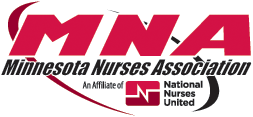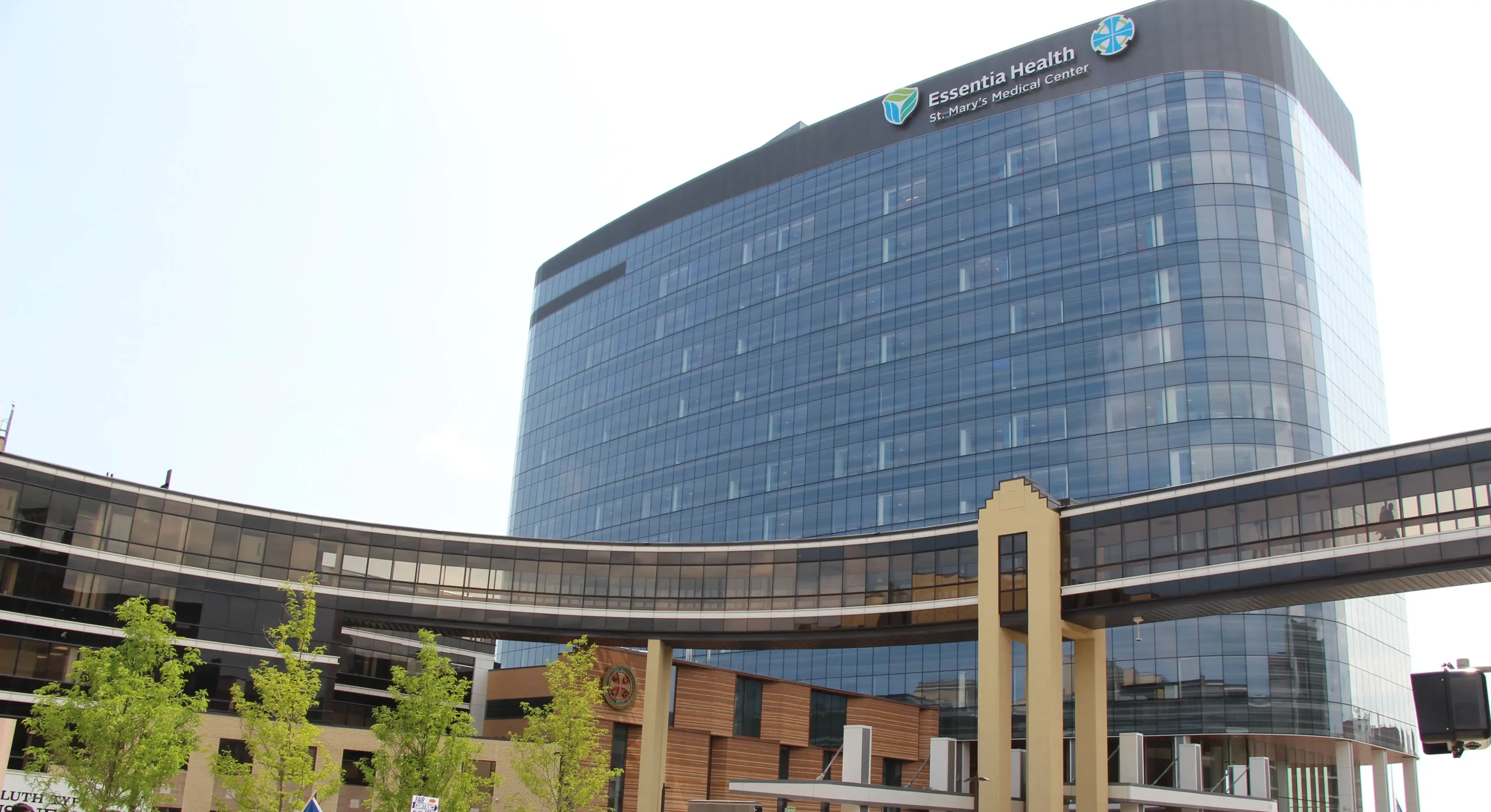 MNA President Linda Hamilton, RN, BSN joined health experts on Monday to highlight the impact of low-wage work on community health. The press conference also included Commissioner of Health Dr. Edward Ehlinger, Representative Tina Liebling and ISAIAH President Rev. Paul Slack and called for a wider discussion around ending poverty wages in Minnesota.
MNA President Linda Hamilton, RN, BSN joined health experts on Monday to highlight the impact of low-wage work on community health. The press conference also included Commissioner of Health Dr. Edward Ehlinger, Representative Tina Liebling and ISAIAH President Rev. Paul Slack and called for a wider discussion around ending poverty wages in Minnesota.
Although wages and health are rarely talked about together, the Minnesota Department of Health (MDH) drew the links. MDH released a report on Monday providing research to back up the claim that increases in income are associated with positive health outcomes.
The report states that people with higher income are more likely to live longer and healthier lives than those with lower income levels, and recommends policies aimed at increasing income for groups with the lowest income. The full paper can be found here.
President Hamilton’s remarks offer an honest and poignant bedside view of the issue.
Good morning,
My name is Linda Hamilton. I’m a nurse at the Neonatal Intensive Care Unit at Children’s Hospital, and I’ve been a nurse for 33 years. I’m also proud to serve as the president of the Minnesota Nurses Association.
Many families struggle affording a healthy lifestyle. It is impossible at $7.25 an hour.
A young mother I know of worked two jobs, which wasn’t even enough to pay rent and the expenses associated with a complicated birth. She lived out of her car, staying warm at night under a pile of blankets. She returned to work within days after delivery so she could save her money for an apartment for when her baby was ready to come home. Her dream of an apartment for her and her child was destroyed one night when she was robbed and beaten.
If this child is going to grow up to be a healthy child, she will need an environment where there is safe shelter, good nutrition, medical and dental care. This story is not about one isolated family unfortunately. This story is real for many across the state.
22 percent of all children in this country live in poverty – the highest rate we’ve seen in decades.
It’s no wonder children and their parents are coming to the hospital sicker than ever. It’s obvious that patients are avoiding even simple check-ups because they can’t afford them. When they do get sick, they wait till payday to go to the clinic and then may not be able to pay for the treatment prescribed. This can lead to catastrophic illness, which leaves scars for life or– may take a life.
Nurses are patient advocates. We want to ensure that before you ever come into our care that you’re going to get the best care. It’s more difficult and some may say impossible for Minnesotans to get that good care when they live below the poverty line-especially when those Minnesotan’s are children.
No family in Minnesota deserves to be poor when they work for a living. Nurses are committed to keeping healthy people in their homes and in their schools, rather than in our hospitals and institutions. Let’s make health –possible. We need a livable minimum wage– now.



